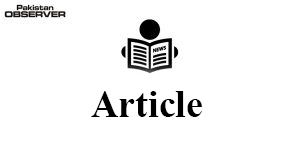Prof. Dr. M. Athar Khan
According to the commonly held modern views, institutions grow out of peoples’ social and per
sonal demands and needs; as well as to ensure their subsistence and survival in the socio-economic and political milieu of the surrounding and changing world. Hence they are subject to change and modification by the people to suit to their needs and the conditions of the surrounding world. In Islam, however, the situation is otherwise. Institutions in Islam are founded and continue according to the principles and laws of the Qur’an, which are absolute, universal and sole determinants of individual and social behavior of the people in all times and under all conditions. As it is true for all institutions in Islam, Madrassah is no exception to it. The whole philosophy and system of Madrassah, as an institution, emanates from the text and the very first word of the revelation of Qur’an—Iq’ra and the Islamic concepts of Ilm, Ibaadah and Kasab.
In all its meanings Iq’ra and its place in the Qur’an implies Allah’s order to read, learn, make others learn and practice what follows it in the text of the Qur’an. The Iq’ra context of Madrassah together with the Qur’anic concepts of Ilm, Ibaadah and Kasab provides for the whole philosophy and absolute basics of Madrassah in Islam as discussed below:
IQ’RA: The word Iq’ra, in its connotative meanings and place in revelation of the Qur’an makes education mandatory for all Muslim men and women. As it is commensurate with their places and positions in the family and society, the Qur’anic injunction Iq’ra makes it obligatory upon all Momineen to acquire Ilm (learn or educate oneself), disseminate it (teach others) and make and help others learn (exhort and provide others facilities for learning) for purposes none (commercialization and worldly gains etc.) other than in obeying and carrying out Allah’s command-Iq’ra.
ILM: In Islam Ilm has its own sanctity and religiosity as it is an attribute of Allah Himself. Man’s capability and capacity of Ilm is Allah’s special endowment to man that is commensurate with his place and position as His Khalifah on earth. This same concept of Ilm imbues and permeates all concepts, means and aspects of MADRASSAH. Ilm as an attribute of Allah also implies that Allah Himself is the beginning and end of Ilm and therefore, it is unlimited and indefinable. In Arabic language however, the word Ilm means more than knowledge of things and all that the word science denotes in the modern context. Practicality and practicability of Ilm are the elements that constitute Ilm in all its meanings and usages.
Madrassah as an institution is responsible to ensure and safeguard the religiosity, sanctity and concepts of Ilm in all that concerns and relates to its goals, objectives, curriculum and organization.
IBAADAH: In Islam the word Ibaadah denotes a three-fold responsibility of man that includes (1) man’s responsibility to Allah (knowing and obeying all His orders), (2) to one self (following Awamir o Nawahi and use of what is Halaal and abstinence from all that is Haraam) and (3) man’s responsibility to Ibaad is described in terms of ‘Huqooq-al-Ibaad’, wherein Ibaad refers to all persons, and things which concern one in any way. ‘Fundamental rights’ is only a near and too narrow a translation of Huqooq-al-Ibaad. Because the latter has a broader connotation and includes all humans, animals, plants, things in nature, as well as all manmade things and resources with which man is concerned in any way. The two terms Huqooq and Ibaad together imply man’s responsibility to treat ‘all’ (humans, animals, plants, all natural and manmade things which are of concern in man’s life) in ways that ensure their care, safety and well-being, and maximization of their benefits to the individual and the mankind in general.
KASAB: The Arabic word Kasab means “to collect”. It also means ‘effort for acquiring or having something’. In either case it is specifically used to mean the work and the effort that one puts forth for obtaining something or achieving certain goal or objective.
In the context of Madrassah or education in Islam the concept of Kasab is closely related with the concept of Ibaadah. In their connotative meanings the two terms (Ibaadah and Kasab) together imply the responsibility of man to care, respect and safeguard the interests, and promote the welfare of other people and things that concern him in anyway. It also implies care and just and proper use of things and objects that constitute man’s environment, and the ones that are used as means of man’s subsistence, well being and comfort.
Element of Kasab is inherent in the concept of Ilm, which permeates all aspects of education in Madrassah. Kasab as such is integral to all forms and aspects of education in Islam. Accordingly, in Madrassah both learning and teaching focus not only the interest of students alone; but they equally consider interests and benefits of the Ibaad as well.
Concepts of Iq’ra, Ilm, Ibaadah and Kasab as described above together form bases for Madrassah and define standards for all aspects of education in the world of Islam. In our own country context the present situation demands that:
* Education in Pakistan is revamped to conform to the philosophy and basics of the Islamic institution of education.
* National philosophy of education is defined and system and a structure of education are created to establish an integrated and a definable structure of national education.
* Responsibility of education is laid upon all people relative to their positions, places, and occupations.
* Exploitation of means and resources of education for injudicious profit-making is controlled by law.
—The writer is Professor & Advisor to the VC, Sarhad University, Peshawar.










